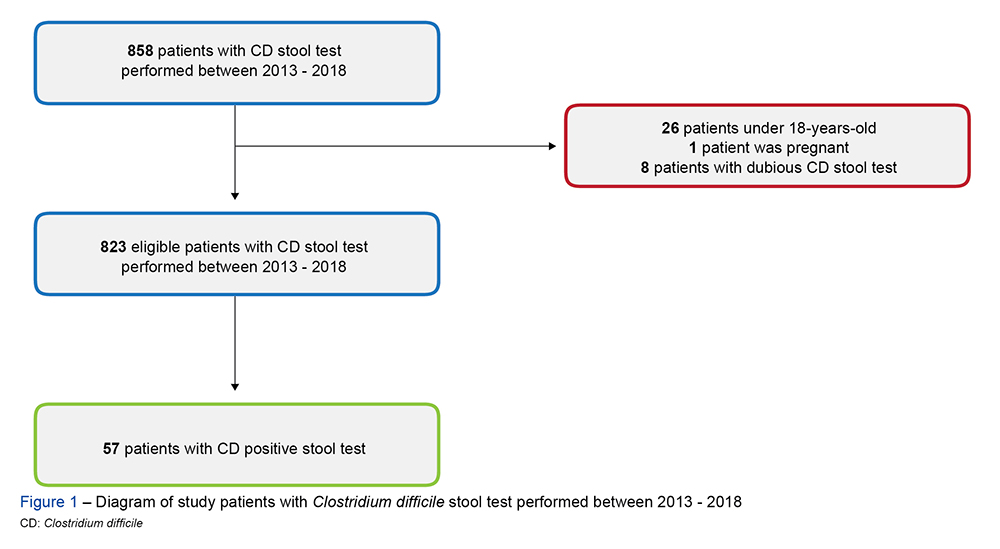SOCIAL MEDIA
Portuguese Medical Association's Scientific Journal

Introduction: Clostridium difficile infection has been increasingly reported, with a significant healthcare burden and important morbimortality. This study aimed to characterize and describe the severity and outcomes of this event at a Portuguese hospital.
Material and Methods: We conducted a retrospective analysis, by clinical record review, of all confirmed cases diagnosed in a hospital in the North of Portugal, between January 2013 and December 2018. We included those who were non-pregnant and at least 18 years old.
Results: Fifty-seven cases occurred, mostly in females and aged patients; 33.3% were healthcare facility-outset, while 31.6% were community-associated. Regarding severity, 43.9% had non-severe, while 29.8% severe and 21.0% fulminant presentations, the latter with the need of admission. Exposure to antibiotics occurred in 68.4%, while to proton-pump inhibitors in 57.9%. Risk factors for severe disease were female gender, chronic renal disease, and high neutrophil-lymphocyte ratio. Moreover, renal disease and a higher ratio were associated with fulminant disease. Thirty-day all-cause mortality was found in 15.8% while 90-day in 28.1%. Risk factors for 30-day mortality were renal disease, higher Charlson score, and higher neutrophil-lymphocyte ratio. Risk factors for 90-day mortality were advanced age, previous antibiotic exposure, higher Charlson score, and higher neutrophil-lymphocyte ratio.
Conclusion: Data concerning Clostridium difficile infection severity and prognosis in Portugal is scarce, and future studies should focus on this important topic.